A Conversation with Blue Ridge Leadership
Checking in with Dan McDougal and Danielle Hava, LCSW
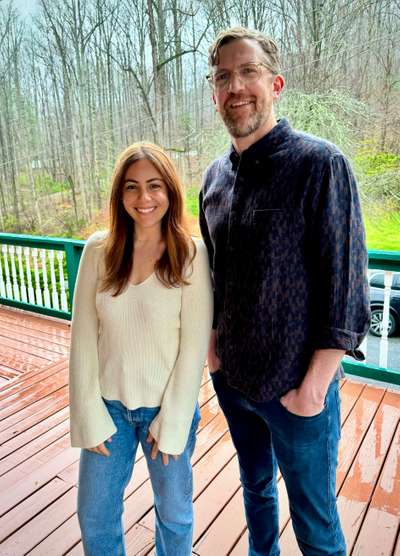
Hello,
Recent program closures and conversations about outdoor behavioral healthcare have put wilderness therapy in the spotlight. We sat down with Blue Ridge owner and founder, Dan McDougal, and Executive Director, Danielle Hava, LCSW, to discuss how the long-established program has evolved and adapted to better serve families seeking treatment in 2024.
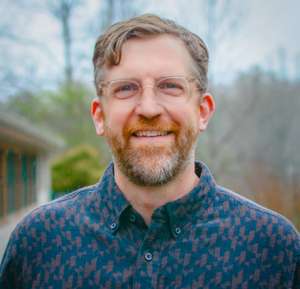
Dan, you’ve been an owner of Blue Ridge’s wilderness therapy program for over twenty years and have been the single owner of Blue Ridge Therapeutic Wilderness since 2016. What keeps you dedicated to Blue Ridge’s model through the years and why?
Dan: Our team and I remain deeply committed to serving our families through data-driven best practices to provide the best, sustained outcomes. What keeps me dedicated is knowing we are establishing a foundation for family systems to grow and thrive. We achieve our mission by underscoring that Blue Ridge is a family intervention. Greater and longer-lasting gains for our students are seen when parents are intentionally involved and actively engaged.
While our programming, curriculum, and practices continue to evolve, what hasn't changed is the experiential wilderness setting, where resiliency and self-efficacy can be lived and integrated, often for the first time. Teens and young adults who attend Blue Ridge are able to make great strides towards a sense of accountability, adaptability, agency, regulation and resilience. Our immersive wilderness model ensures that every single action serves both practical and therapeutic purposes. In Blue Ridge's approach, no time is wasted: first, students learn experientially, and later, they arrive at a cognitive understanding that we know has lasting impacts on their paths into adulthood.
We have increased our clinical sophistication and focus on customer service since Danielle Hava became Executive Director of Blue Ridge in 2021. With Danielle at the helm, we have remained true to our vision of ensuring seamless clinical integration between our field teams and therapists to provide the most effective assessment and clinically integrated treatment for our students and their families. We have also been able to weather many shifts in the ever-changing healthcare landscape while providing a consistent, reliable experience for our students, families, alumni, and referral partners.
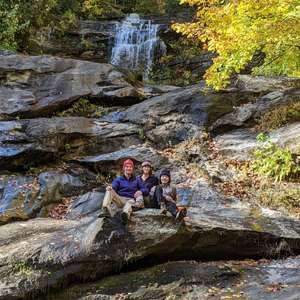
How have you evolved to meet the needs of clients and their families in 2024?
Dan: We know the process and decision to send a child to wilderness is one of the most consequential and difficult choices a family can make. Our priority is that parents feel confident in their decision and are held tightly by us from the very first phone call and the moment they walk through our door.
Danielle: We accomplish this through our family programming and particularly our Student Care Coordinators who work diligently to create a positive student experience. They ensure that parents have a clear window into their child’s stay through photos, videos, and stories and help turn the conceptual parts of wilderness to something more tangible and visible and comforting.
Family and parent involvement is required at Blue Ridge and we provide at minimum four points of contact weekly. Our parent curriculum and offerings for family members to engage are diverse and creative whether it's our Precision Track, Family Intensives, Transition Camp, webinars, or opportunities to involve siblings.
Dan: We place a significant emphasis on how students narrate their experience in real-time. While everything we do has a therapeutic intention, what matters most is how the wilderness therapy experience is landing with our students. Our team is attentive to always responding to and addressing feedback and the needs of our students.
Danielle: We are invested in remaining connected to Blue Ridge families through social media, parent support groups, visits with families at the office, feedback surveys, and our amazing alumni network. Our Alumni Relations Coordinator helps us to remain engaged with those who matter most, and our Returning Student Mentor program is as busy as it’s ever been!
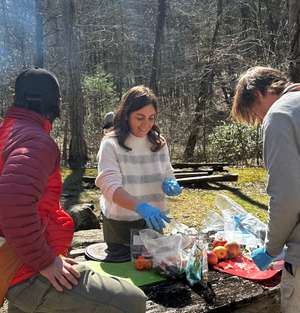
There aren’t many single-owner operated programs out there in the therapeutic space. Can you tell us more about being an owner-operator and how that differs from other business structures?
Dan: Being a single owner operated program is a large part of why we are doing well today—it’s allowed us to remain nimble during the natural and expected fluctuations in enrollment. We are able to thoughtfully implement changes that holistically address our clients’ needs without sacrificing quality of treatment, versus an impulsive response to the market or the latest buzz on social media.
Danielle: Dan and I take great pride in being heavily involved in the day-to-day operations. We’re here on-site every week, connecting with each therapist and our field staff during their weekly inservice trainings, problem-solving with the field and logistics teams, and touching base with parents and students as they enroll, visit, and transition to their next steps. We are involved in even the most minute details of the day to day operations.
We talk every single day with each other and our managers, therapists, and field staff about the things we can be doing better. Whether it’s the type of fruit we are putting in restock next week, the quality of gear, the activities we are bringing to the field, the colors and quality of the shirts we are buying this spring, the communication going out to parents if there is incoming weather, every detail matters to us.

Parents seem to be waiting longer to look for help. Have you seen a change in parents' ability to seek out early intervention?
Danielle: Definitely—there is so much access to conflicting information today. We have seen a huge increase in overwhelm and decision paralysis amongst our students as well as their parents. Parents can become so lost in some of the negative social media stories that they stop looking at the reality and high risk nature of their loved one’s current behavior and the underlying issues that are driving those behavior patterns.
Dan: We understand the gravity of the decision to send a child to treatment, and we want to help families with the daunting process as much as we can. That is why we assign every family with a tight-knit support team immediately upon enrollment. This includes a Primary Therapist, Family Therapist and a Student Care Coordinator, as well as access to alumni parent mentors.
The Student care coordinator is a highly involved role where the primary purpose is to serve as a window into the students' experience outside of family visits to the field. They spend time in the group every week, capturing photos and videos of the daily routine as well as the fun activities and holiday celebrations. Parents are even able to see videos of field staff explaining what they are doing that day. This role helps to maintain the therapeutic value of the wilderness milieu while offering parents and RPs a more comprehensive view of the program.

What other elements of programming have you changed in recent years?
Danielle: In addition to our traditional programming and family intensives, our Precision Track is a brief, customized experience for an individual or family which can last from 2-14 days. This track can be a stand alone program, or a bridge to help families who are struggling to commit to the length and depth of a traditional wilderness program.
Dan: In addition to our adolescent and young adult groups, we have also added an emerging adolescent girls group for ages 12-14. The model is slightly different, in that the emerging adolescent group spends more time at our base property where they can get a reset, take hot showers, and participate in equine therapy before returning to the field.
We have also updated young adult programming to offer students a more traditional ‘base camp’ setting, where they live on our 120 acre property for 4-5 days every other week to engage in transferable skills development, where they can enjoy access to a commercial kitchen and hot showers in between expeditions.
Danielle: We've also included a more robust and intensive assessment process as part of our initial enrollment. Each student receives a psychiatric assessment, a battery of psychological assessments, and a medical assessment on the front end of their treatment to ensure that the treatment team receives the most comprehensive and recent information.

Learn More
Blue Ridge Therapeutic Wilderness is a licensed and accredited outdoor child-caring program that provides mental health treatment from licensed therapists and skilled outdoors professionals. Removed from the distractions of daily home life, students (ages 12-18, and 18-29 in the Emerald Arrow young adult program) engage in early clinical assessment and evidence-based therapeutic approaches to learn communication skills, emotional regulation, healthy habits, and other skills needed to be aware of and act on their values. To learn more about Blue Ridge Therapeutic Wilderness, visit blueridgewilderness.com or speak with an admissions counselor by calling (888) 914-1050.
